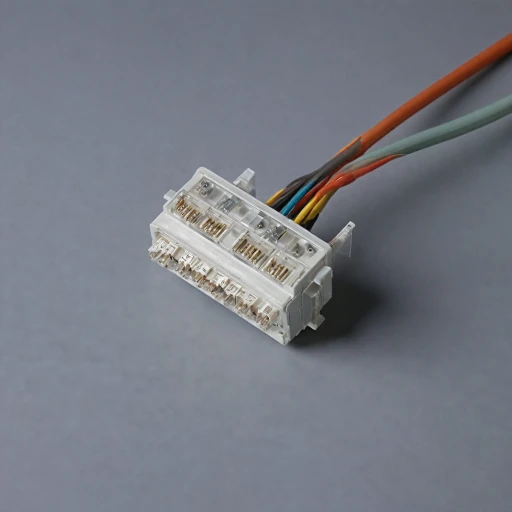
Understanding the Basics of Solar-Powered Lawn Lights
Grasping the Core of Solar Lawn Lighting
In recent years, solar-powered lights have become a popular choice for lighting outdoor spaces, thanks to their eco-friendly nature and cost-efficient operation. Solar garden and pathway lights are particularly favored for their convenience and ease of use. Solar lights function through a simple yet effective mechanism, which involves key components that work harmoniously to bring your garden to life after the sun sets. Understanding these basic elements is crucial if you aim to ensure optimal performance and longevity.- Solar Panels: These are vital as they capture sunlight during the day and convert it into electrical energy. This energy is then stored in batteries to power the lights at night.
- Batteries: Essential for storing the electricity collected by solar panels, batteries ensure that your lights remain bright even during overcast days.
- LED Bulbs: Known for their efficiency and long life, LED lights are typically used in solar pathway lights to provide bright and clear illumination.
Common Issues with Solar Panels on Lawn Lights
Identifying and Understanding Potential Problems
Solar-powered lawn lights offer remarkable benefits, but they occasionally come with certain issues that can affect their overall performance. Being informed about these can help in promptly addressing them and avoiding long-term complications. Here are some common challenges that solar lighting enthusiasts might face:
- Insufficient Sunlight Exposure: Solar panels require adequate sunlight to charge the batteries effectively. If your solar pathway or garden lights are positioned in shady areas or during overcast days, the performance could be suboptimal.
- Dirty or Damaged Panels: Routine cleaning is essential for solar panels to function at their best. Dirt, dust, and debris can hinder sunlight absorption. Utilizing a soft cloth or cloth sponge with gentle water cleaning can help maintain them.
- Battery Issues: Over time, the batteries in solar or led lights may degrade, affecting the lighting performance. Regularly checking and replacing the batteries as part of your maintenance routine can solve this problem.
- Water Ingress: Despite being designed for outdoor conditions, solar lights can sometimes be susceptible to water entry. This can impact the internal components, causing malfunctions or reduced efficiency.
Addressing these issues with timely and proper enhancements to your outdoor space can significantly improve the reliability and longevity of your solar lighting solutions. Additionally, incorporating regular maintenance and considering surrounding environmental changes can play vital roles in ensuring the optimal performance of your solar panels and lights.
Routine Maintenance Tips for Solar Panels
Regular Cleaning for Clearer Outcomes
To ensure your solar panels maintain optimal performance, incorporating regular cleaning into your maintenance routine is essential. Dust, dirt, and debris can accumulate on the panels over time, significantly reducing the amount of sunlight absorbed. It's essential to clean solar panels using a soft cloth or a cloth sponge to avoid scratching the surface. Rinse with water, but avoid using harsh chemicals, as they can damage the panels and impair their efficiency.Evaluating Performance and Preventing Battery Drainage
While cleaning solar lights, take the opportunity to check the performance of the solar battery. Dimming lights can be an indication of battery issues. If they're not holding charge as expected, it might be time for a replacement. Keep in mind that the life expectancy of batteries in outdoor solar lighting can vary based on use and environmental factors.Inspect and Adjust for Maximum Light Exposure
To maintain the effectiveness of your solar pathway lights or solar street lighting, ensure that the panels are not obstructed by any overhanging branches or objects that could cast shadows. Panels that enjoy maximum sunlight exposure throughout the day will charge more efficiently, enhancing outdoor solar lighting performance.Understanding LED Components and Their Role
The long-lasting durability of LEDs contributes to the overall maintenance schedule. While inspecting your solar lights, take the time to verify that the solar LED components are secure and functioning properly. If you notice any flickering or outage in your solar garden or street lights, it might be necessary to address issues in the LED setup. Regular maintenance, including cleaning and inspecting solar panel and battery components, will ensure your outdoor lighting retains its effectiveness. For further tips on home and garden lighting maintenance, you can visit our guide on enhancing your home with lighting solutions.Seasonal Considerations for Solar Panel Care
Adapting Solar Panels to Seasonal Changes
Maintaining optimal performance for solar panels powering your lawn lights requires adapting to the fluctuations in weather and sunlight that each season brings. As you assess the solar garden application or the efficiency of your solar pathway illuminations, understanding the impact of seasonal variations is crucial. During the sunny days of summer, your outdoor solar panels can collect ample sunlight, resulting in longer illumination times. However, the high temperatures might cause the batteries or fixtures to overheat. Apply routine checks to ensure that solar panel components, such as the solar light battery or LED system, are shielded from excessive heat, potentially using shading or reflective materials. As autumn approaches with falling leaves, regularly clean the solar panel surfaces, ensuring no debris obstructs sunlight absorption. Use a soft cloth or sponge with water to gently remove dust and grime. Remember that clean solar panels will maximize the efficiency of your outdoor lighting system. In winter, shorter daylight hours and harsh weather conditions can pose challenges for lighting solar pathways. Snow and ice can cover your solar panels entirely, blocking sunlight. Employ a routine cleaning schedule to brush away snow and ensure panels remain clear for maximum sunlight exposure. As snow can impact your solar street or garden lights, diligent maintenance ensures your lighting needs are met even in colder months. Springtime, with its increased rainfalls, will naturally clean your panels but also demands regular inspections to check for potential water damage or decreased battery health. By keeping a close eye on outdoor lighting performance, you can replace any worn-out batteries or LED units for improved results. Adapt your solar panel maintenance routine to effectively cope with each season and ensure your outdoor lights continue providing optimal performance throughout the year.Upgrading and Replacing Solar Panels on Lawn Lights
Evaluating the Need for Upgrades
Solar-powered lawn lights are a fantastic way to illuminate your garden or pathway, but over time, you might find that their performance diminishes. This could be due to several factors, including the age of the solar panels or the batteries. Regular maintenance and cleaning can help, but sometimes an upgrade is necessary to ensure optimal performance.
Signs It's Time to Upgrade
- Reduced Light Output: If your solar lights are not as bright as they used to be, it might be time to check the solar panels and batteries. Over time, these components can wear out, affecting the overall lighting performance.
- Frequent Battery Replacements: If you find yourself replacing batteries more often, it could indicate that the solar panel is not charging them efficiently.
- Physical Damage: Cracks or other visible damage to the solar panel can significantly reduce its ability to capture sunlight.
Choosing the Right Replacement Parts
When upgrading, it's essential to select the right components to match your existing setup. Consider the following:
- Solar Panels: Look for panels with higher efficiency ratings to capture more sunlight and improve charging capabilities.
- Batteries: Opt for high-capacity rechargeable batteries to ensure longer-lasting light output.
- LED Bulbs: Upgrading to more efficient LED bulbs can enhance the brightness and longevity of your solar lights.
Installation Tips
Once you've selected the appropriate upgrades, proper installation is crucial. Ensure that the solar panels are positioned to receive maximum sunlight exposure. Use a soft cloth or sponge to clean the panels regularly, removing any dirt or debris that might block sunlight. Regular cleaning will help maintain the efficiency of your solar lighting system.
Future-Proofing Your Solar Lighting
As technology advances, so do the options for solar-powered outdoor lighting. Consider investing in smart solar lights that offer features like remote control and programmable settings. These innovations not only enhance convenience but also improve the overall performance and efficiency of your outdoor solar lighting system.
Future Trends in Solar-Powered Lawn Lighting
Innovations Propelling the Future
The solar lighting industry is witnessing rapid advancements, promising to elevate the performance and efficiency of solar-powered lawn lights. As you focus on routine maintenance and regularly check your existing solar panels, it's important to stay informed about future innovations that may revolutionize your outdoor lighting setup.
Enhanced Solar Panel Efficiency
New technologies are constantly emerging to boost the efficiency of solar panels. These advancements aim to capture more sunlight and convert it into energy, effectively increasing the power output of your solar lights. By optimizing panels for diverse weather conditions, higher efficiency reduces the frequency of maintenance and cleaning needed to achieve optimal performance.
Smart Integration in Solar Lighting
The rise of smart technology is not limited to indoor spaces. As it advances, solar outdoor lighting will likely incorporate features like remote control, energy usage analytics, and automatic adjustment based on weather conditions or user preferences. This transformation will not only enhance the convenience of solar pathway and street lights but also ensure they operate efficiently throughout all seasons.
Durable and Eco-Friendly Materials
As sustainability becomes a priority, manufacturers are focusing on creating solar lights using durable yet eco-friendly materials. By investing in such products, you can reduce the environmental impact while ensuring a longer lifespan for your lighting setup. This shift also emphasizes the importance of water-resistant and sturdy materials that stand the test of time and weather.
Future-Proof Battery Technologies
Battery technology plays a crucial role in the performance of solar lights. Emerging innovations aim to extend the lifespan and charging efficiency of batteries while minimizing heat buildup and long-term wear. With better batteries in place, maintenance becomes less frequent, and performance remains uninterrupted, even during cloudy days.
By staying abreast of these trends, you can prepare and make informed decisions when it's time to upgrade or replace components. This proactive approach, combined with regular cleaning and maintenance, will ensure your solar garden lights function efficiently and sustainably as technology evolves.













